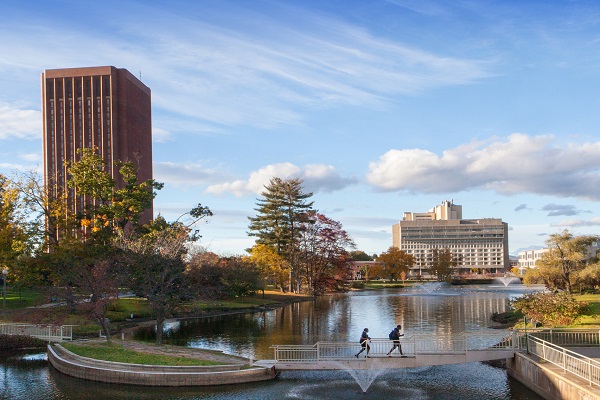University Of Massachusetts Amherst’s Team Bags Honour Of 2023 Armstrong Fund For Science Award
The interdisciplinary team of Cathal Kearney, assistant professor of biomedical engineering, and Govind Srimathveeravalli, assistant professor in mechanical and industrial engineering, has received the 2023 Armstrong Fund for Science Award.
Beginning in September, the pair will receive a two-year, $40,000 grant for their research project, “You Can Teach an Old Dog Young Tricks: Enhancing Wound Healing Through Rejuvenated Biomaterials.”
Building on discoveries in each of their labs, Kearney and Srimathveeravalli will work together to develop a new approach to speed the healing process in hard-to-heal wounds.
“We will investigate the use of young and rejuvenated extracellular vesicles for the first time to accelerate wound healing,” the team states in their project abstract. “With 1-2% of the population developing a chronic wound in their lifetime, our discoveries are urgently needed to help patients.”
Benefactors John and Elizabeth Armstrong established their Fund for Science in 2006 to identify and support UMass Amherst researchers with promising, bold projects that may challenge conventions in their field. Early-career faculty who are women or members of groups that are underrepresented in science, technology, engineering and mathematics (STEM) are especially encouraged to apply.
The Kearney Lab aims to engineer tools to enhance tissue repair and regeneration by understanding and mimicking natural biological cue timing. While young and rejuvenated cells, such as induced pluripotent stem cells (iPS), accelerate wound healing, their clinical translation is prohibitively expensive and complicated by regulatory barriers.
Kearney was able to build materials using the extracellular matrix (ECM) and extracellular vesicles (EVs) secreted by these cells, creating a way to exploit their rejuvenating benefits without using the cells themselves.
“The Kearney Lab was the first to fabricate such a rejuvenated ECM, using iPS-reprogrammed and re-differentiated cells, demonstrating that these biomaterials directed aged and diseased cells to behave like young and healthy cells,” the abstract states.
Meanwhile, the Srimathveeravalli Research Group develops novel medical devices for energy delivery in vitro and in vivo by studying the interaction of non-ionizing energy and biology at multiscale resolution, from cells through organ systems. Srimathveeravalli and his team use computer simulations to model biological response after exposure to energy and to design energy parameters that elicit specific responses.
While Kearney’s work focused on the ECM scaffold, Srimathveeravalli generated new data demonstrating enrichment of EVs within these scaffolds. These EVs are naturally produced nanoparticle therapeutics that can manage homeostasis, repair and regeneration.
The Armstrong Fund review panel remarked not only on the strength and novelty of the Kearney-Srimathveeravalliproposed research, but on the researchers’ strong fit for Armstrong Fund priorities.
Armstrong Fund for Science grants are awarded annually. Proposals are selected for awards through an internal limited submission process administered by the Office of Research Development.

